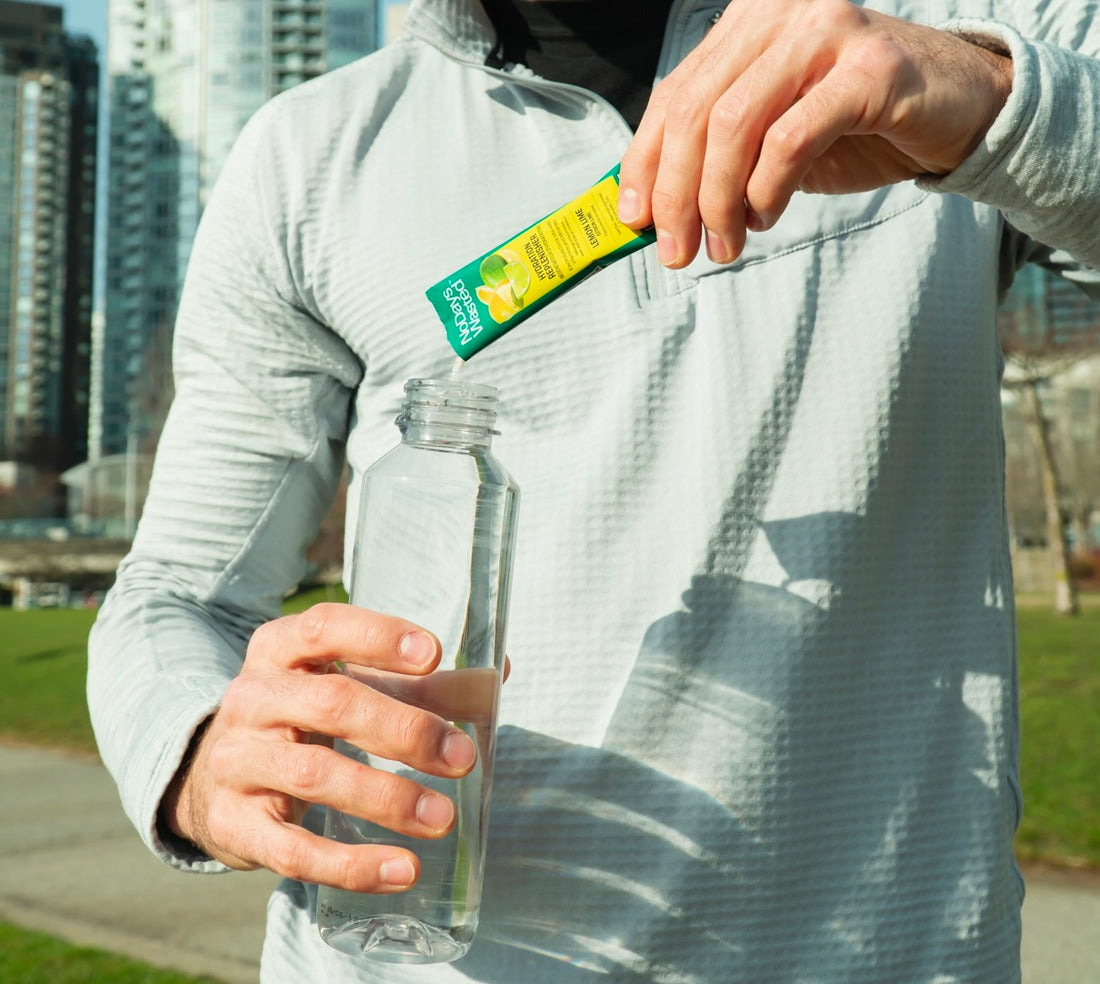Ever felt like you’re dragging yourself through a workout, your energy is low, muscles are aching, and no matter how much water you drink, nothing seems to help? You might be dehydrated. Dehydration can sneak up on you, slowing a great workout down. But don't worry, there’s a simple fix: hydration packs and the right balance of electrolytes.
Recognizing the Signs of Dehydration
Dehydration isn't just about feeling thirsty. Here are some key signs to watch for:
- Dry Mouth and Thirst: An obvious but crucial sign.
- Fatigue: Feeling unusually tired or sluggish.
- Dark Urine: A clear indicator; the darker the urine, the more dehydrated you are.
- Dizziness and Confusion: Severe dehydration can affect your cognitive function.
- Muscle Cramps: Often, dehydration disrupts the electrolyte balance, causing painful cramps.
The Role of Electrolytes
Electrolytes like sodium, potassium, and magnesium are minerals that help your body maintain proper fluid balance, muscle function, and nerve signalling. When you sweat, you lose these essential electrolytes, and plain water isn't enough to replenish them. This is where hydration packs and muscle recovery supplements come into play.
How to Get Electrolytes
- Electrolyte-Rich Foods and Drinks: Incorporate foods like bananas, oranges, spinach, and avocados into your diet, along with drinks like coconut water to naturally boost your electrolyte levels
- Hydration Packs: These are an excellent, convenient way to stay hydrated during long workouts. They often contain a balanced mix of electrolytes to keep your body functioning at its best. Our new 24-pack of Hydration Replenisher is particularly handy for ensuring you never run out of essential hydration on the go. They contain electrolytes, vitamins, and magnesium for muscle recovery!
Recovering from Exercise
After a tough workout, your body craves nutrients to repair and build muscle. Magnesium plays a significant role in muscle recovery, including electrolytes and magnesium can speed up recovery and reduce muscle soreness. Looking for products that have a balanced blend of magnesium and electrolytes makes it easier to achieve optimal recovery.
Sources:
Armstrong, L. E. (2007). Assessing hydration status: The elusive gold standard. Journal of the American College of Nutrition, 26(5S), 575S-584S. https://doi.org/10.1080/07315724.2007.10719661
Maughan, R.J. and Shirreffs, S.M. (2010), Dehydration and rehydration in competitive sport. Scandinavian Journal of Medicine & Science in Sports, 20: 40-47. https://doi.org/10.1111/j.1600-0838.2010.01207.x
Nesheim, R. O., Marriott, B. M., Institute of Medicine (U.S.). Food and Nutrition Board, ebrary, I., Institute of Medicine (U.S.). Committee on Military Nutrition Research, & NCBI Bookshelf. (1994). Fluid replacement and heat stress (1st ed.). National Academy Press.
Sawka, M.N., Cheuvront, S.N. & Kenefick, R.W. Hypohydration and Human Performance: Impact of Environment and Physiological Mechanisms. Sports Med 45 (Suppl 1), 51–60 (2015). https://doi.org/10.1007/s40279-015-0395-7


